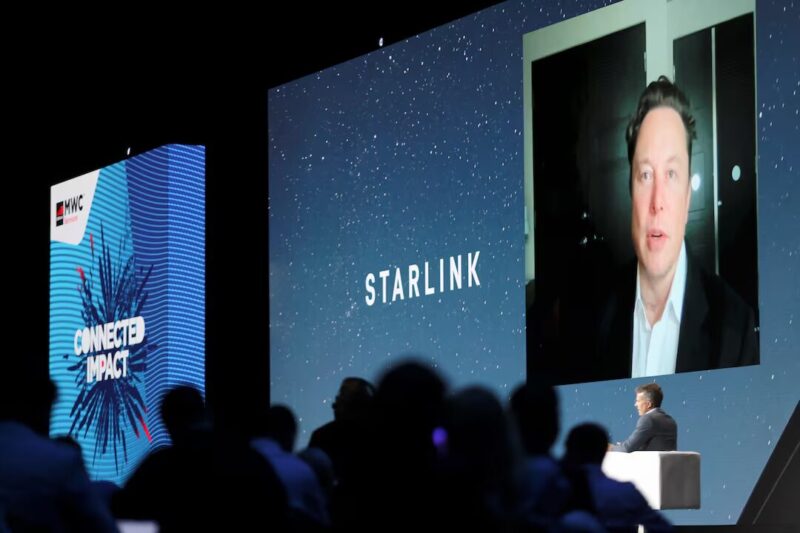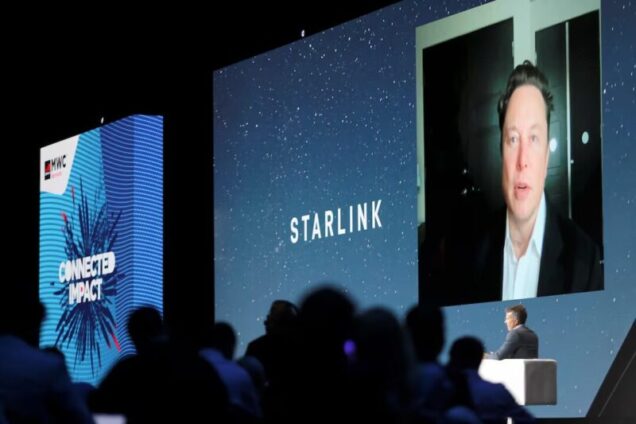A U.S. House committee said on Monday it is investigating the Federal Communications Commission's decision to deny SpaceX satellite internet unit Starlink $885.5 million in rural broadband subsidies.
The FCC said in December reaffirming its position that the decision impacting Elon Musk's space company was based on Starlink's failure to meet basic program requirements and that Starlink could not demonstrate it could deliver promised service after SpaceX had challenged the 2022 decision.
House Oversight Committee Chair James Comer, a Republican, asked the FCC in a letter Monday to turn over documents by Oct. 21 on the decision.
The committee seeks to ensure the FCC "followed established processes and is not improperly using the regulatory process for political purposes."
The FCC said it had received the letter and would respond.

In December 2020, the FCC tentatively awarded $9.2 billion to over 300 bidders to deploy high-speed broadband with SpaceX's Starlink winning $885.5 million in a 2020 auction for rural service.
The FCC opted to deny Starlink the funding in August 2022, citing speed-test data after Starlink had agreed to provide high-speed Internet service to 642,000 rural homes and businesses in 35 states.
Musk has harshly criticized the FCC decision to deny the award he called "illegal" and asserted last week that if Starlink had received he funding "it would probably have saved lives in North Carolina" amid Hurricane Helene.
FCC Chair Jessica Rosenworcel told Congress in February that Starlink's publicly available performance data has confirmed its prior finding that "Starlink had difficulty meeting the basic uplink and downlink speed standards for the program" and added Starlink’s proposal would have required subscribers to purchase a $600 dish to start service.
The two Republican commissioners on the five-member FCC dissented from the decision saying the FCC was improperly holding SpaceX to 2025 targets early.
Last month, Rosenworcel said she wants to see more competition to Starlink, noting it controls nearly two-thirds of all active satellites and has launched about 7,000 satellites since 2018.
"Our economy doesn't benefit from monopolies. So we've got to invite many more space actors in, many more companies that can develop constellations and innovations in space," she said.
Latest Stories
-
How does the new Club World Cup work, and why is it so controversial?
21 mins -
Nana Kwame Bediako proposes construction of more state-owned football academies
28 mins -
Watching football frequently is a waste of time – Nana Kwame Bediako
1 hour -
‘We have wasted taxpayers money’ – Herbert Mensah on Ghana’s sporting decline
1 hour -
No African-based quality; achieve international healthcare standards with local solutions – SafeCare Founder
3 hours -
UHC alone insufficient without quality healthcare – PharmAccess CEO warns
3 hours -
CHAG to receive GH¢2.2bn boost; GH¢110m earmarked for 2025 recruitment – MoH
3 hours -
Ghana Industry CEO Awards: Bright Ladzekpo is Most Respected Advertising CEO
3 hours -
Video: Fatawu Issahaku joins Leicester dressing room celebrations after win over West Ham
3 hours -
Kempinski lights up the festive season in grand style
3 hours -
‘We’ll seal every ballot box’ – NDC’s Tanko-Computer slams Ashanti Regional EC boss for blocking party seals
3 hours -
39 CHAG facilities achieve SafeCare Level 4 – Executive Director
3 hours -
Election 2024: NDC elders asks polling agents to uphold their duties and safeguard Ghana’s future
4 hours -
Bank boss takes pay cut after employee ‘tried to kill clients’
4 hours -
Man jailed four years for threatening to shoot, kill citizens during Dec. 7 elections
5 hours

